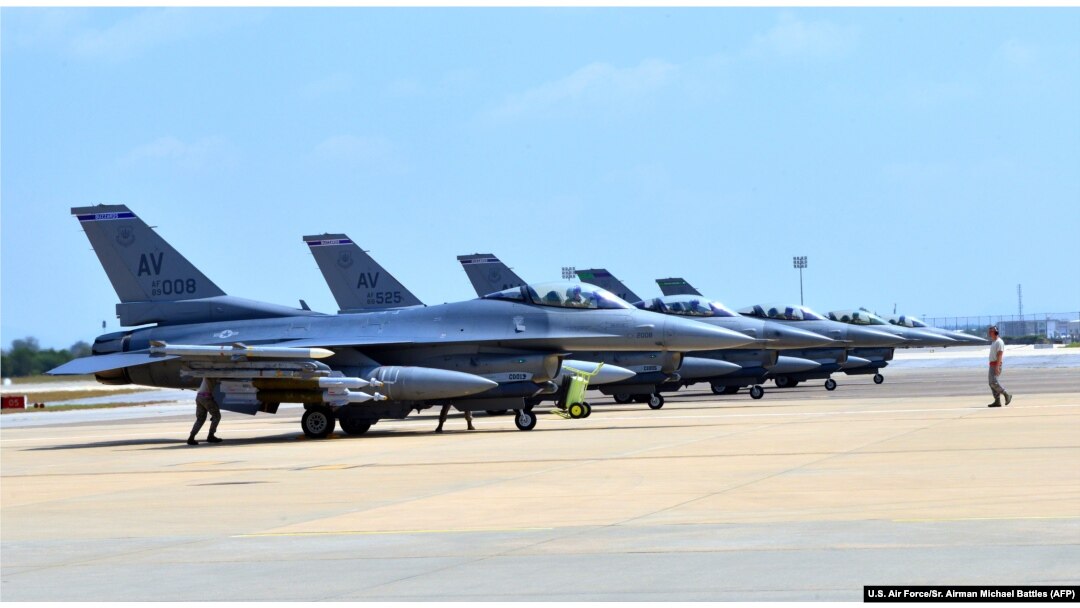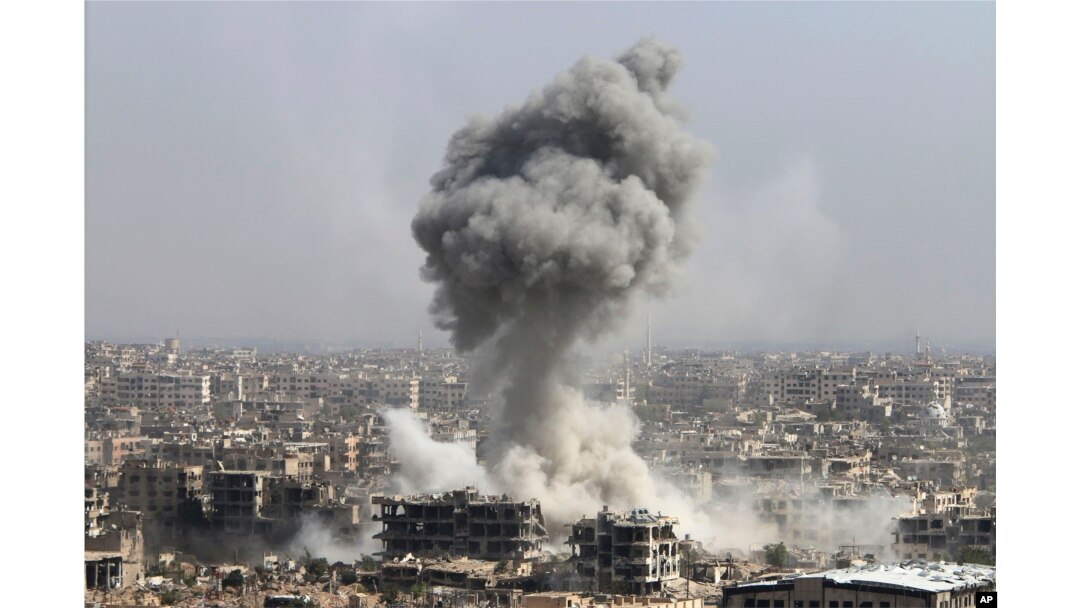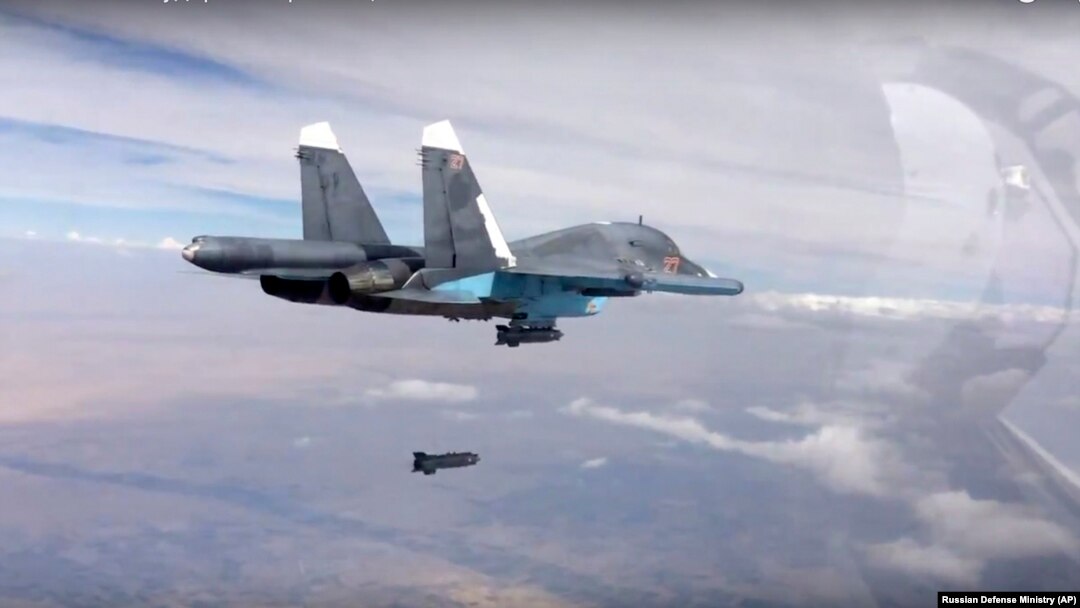A Russia/U.S. memorandum of understanding went into effect immediately after it was signed Tuesday, providing a framework for both countries’ aircraft to maintain a “safe distance” from one another over Syria.
Pentagon spokesman Peter Cook declined to say what that distance was in a meeting with reporters, but he said U.S. crews know exactly what it is. “It is safe to say that anything that could be deemed as threatening or hostile would be deemed a violation of this agreement,” he said.

FILE - Six U.S. F-16 Fighting Falcons from Aviano Air Base, Italy, arrive at Incirlik Air Base, Turkey, to take part in anti-Islamic State missions, Aug. 9, 2015.
Cook said the Russians requested that the full memorandum not be shared publicly. But he said it contained protocols that include “maintaining professional airmanship at all times, the use of specific communications frequencies, and the establishment of a communication line on the ground.” He said the ground communication would serve as a backup in case midair protections failed.
The agreement covers all types of aircraft over Syria, including drones, and it is specific to Syria. It does not apply to any other country.
"The Russians now need to abide by these flight safety protocols" in Syria, Cook said. "We don't want miscalculation."
Pentagon officials have stressed the air guidelines are not part of a broader agreement on how the two countries could operate in Syria. Nor do they indicate the U.S. in any way supports what Russia is doing there. “We continue to believe that Russia’s strategy in Syria is counterproductive and the [Syrian President Bashar al-Assad] regime will only make the Syrian civil war worse,” Cook said.
The Syrian Observatory for Human Rights said Tuesday that Russian airstrikes killed at least 45 people Monday in Latakia province.

FILE - Smoke rises after shelling by the Syrian army, after Russian airstrikes, in Damascus, Syria, Oct. 14, 2015.
Cook asserted that the United States would continue with its own strategy in Syria, attacking the Islamic State group and supporting Syrian moderates. The U.S.-led coalition has targeted Islamic State militants in Syria with more than 2,600 airstrikes since September 2014.
The Russians asked the U.S. for talks on “deconfliction” after they began airstrikes last month.
The Pentagon has reported no major incidents in Syrian skies since Russia started airstrikes there, although there have been a couple of instances when coalition aircraft have had to change course to avoid getting too close to Russian jets.


